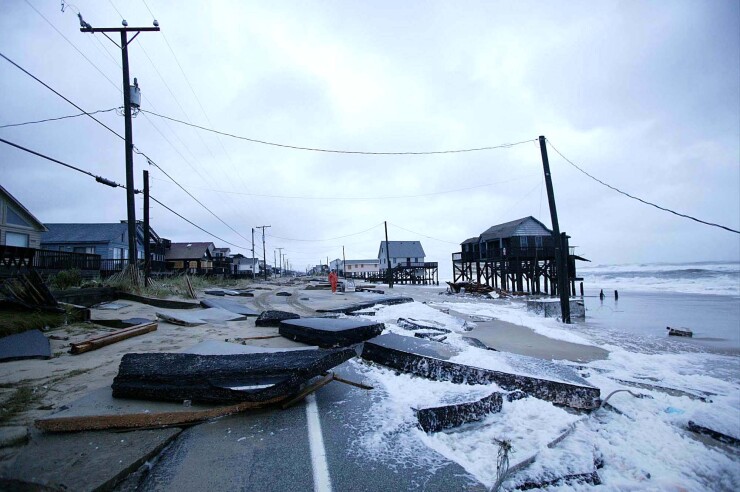The Internal Revenue Service has been extending tax relief to Americans affected by natural disasters like hurricanes and wildfires, but recent legislation could make it easier to qualify for federal tax relief.
Last month, a group of senators introduced a bipartisan bill known as the Filing Relief for Natural Disasters Act that would offer relief to taxpayers in states that have issued state-level emergency declarations (
That could give the IRS, as well as state authorities, broader power to grant tax relief to beleaguered taxpayers and residents.
“The state is usually able to act when it comes to their own state taxes,” said Carlton Huntley, a Thomson Reuters tax expert and content editor, and an adjunct professor of state and local tax at the University of Florida who started his career at the Florida Department of Revenue. “They usually don’t wait for federal conformity. When the federal government makes some sort of tax law change, states usually have some response, either by departmental rules or official incorporation with their own legislation that either mirrors it or references it or contrasts it in some way. So they basically take the federal blueprint and say, ‘We’re going to follow this or we’re going to follow this mostly, but with this small change.’ In states where natural disasters happen fairly frequently, like Florida, the federal government acts first, but the states usually aren’t too far behind, especially if that federal tax relief targets a specific state.”

However, sometimes the state acts first in declaring a disaster or state of emergency. “If it’s bad enough for the feds to come in and say it’s bad, it’s usually bad enough for the states,” said Huntley. “But the opposite is not always true. Sometimes the state will offer certain relief and the federal government may not.”
Congress is currently considering the Biden administration’s Build Back Better Act, which contains an array of climate-related provisions as well as tax and social safety net proposals. The Filing Relief for Natural Disasters Act isn’t part of it right now, but given the ongoing divisions in Congress over the multitrillion-dollar package between Republicans and Democrats, and among Democrats themselves, the bipartisan proposal could potentially fit into the Democrats’ bill as one possible area of agreement.
“One of the provisions of the bill outside of the social safety net portion of it is the addressing of climate change, and one of the things that climate change does is it threatens revenue streams and threatens businesses,” said Huntley. “Directly implicated in that is the income tax and the corporate tax and the other income-based tax obligations of the American taxpayer on a federal level. So, not only having provisions to prevent that, but having provisions to respond to that, wouldn’t be wholly inappropriate in that bill.”
Given the mounting evidence of accelerating climate change that has been producing a series of natural disasters across the U.S. and other parts of the world, more states are finding themselves in the position of needing tax relief.
“Basically I feel that moving forward, when we’re talking about disaster relief, we’re not just talking about California, Florida and Louisiana,” said Huntley. “Texas regularly gets hurricanes as well from the Gulf. We may have an idea historically of what states regularly need disaster relief, and moving forward we may need processes in place that include more states than the ones we think of that will need disaster relief on a fairly regular basis moving forward.”




